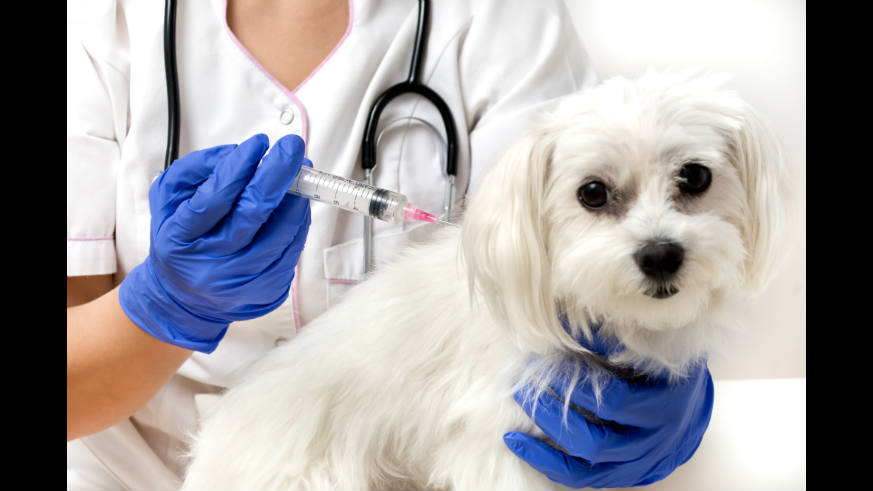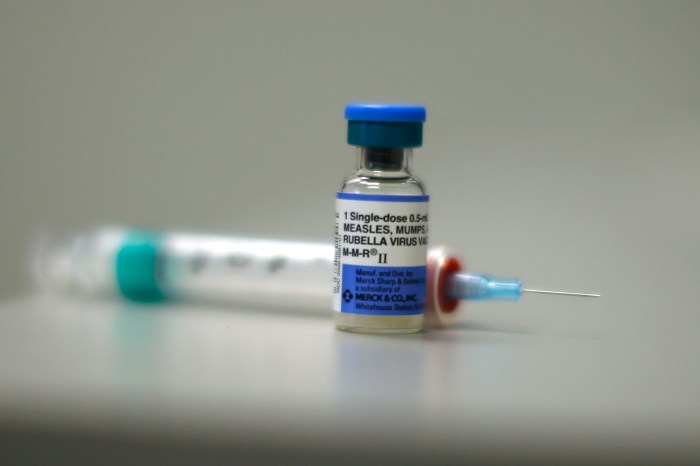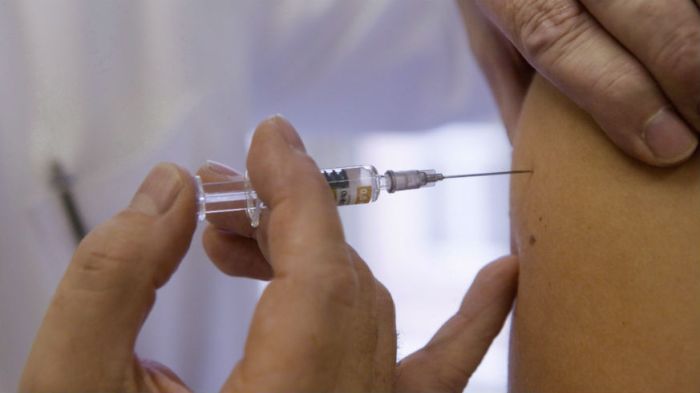Rumor has it the anti-vaccine movement in Brooklyn has gone full-blown cray. Pets are a part of our families, but are some anti-vaxxers in the borough of hipsters and flagels refusing to vaccinate their pets because they are worried about autism in their animals?
Veterinarians in the most populated borough in New York said that pet owners are coming to them with concerns about inoculations, including fears that vaccines could make their dogs autistic, the Brooklyn Paper reported last week, generating interest in the topic that spread online.
Dr. Stephanie Liff, owner and medical director of Pure Paws Veterinary Care in Clinton Hill, who was quoted in the Brooklyn Paper article, told us, “Wow, this story is blowing up.”
She also said anxieties from pet owners aren’t something new.
“We see pet owners with concerns about vaccines in general, and those concerns range from an extension of the movement of anti-vaccination in children to [concerns regarding] putting chemicals in their dog,” Liff explained.
Vaccination protocols are different for pets, and it can be difficult for pet owners to understand the frequency of animal vaccinations versus a human schedule.
Liff said the seeming increase in considerations is most likely due to clients being more educated.
But the big question: Can pets get autism?
“No,” Liff stated simply.
When calling veterinary practices, many we spoke to were not familiar with the autism concern for pet owners, and Nunu, a technician at Crown Heights Animal Hospital, told us “There is no such thing as autism in dogs,” even before the question was done being asked.
The online publication Vaccine Reaction reported autism-like behaviors in dogs but no confirmed cases of canines on the spectrum.
“The criteria for diagnosing a child would be impossible to extrapolate to dogs, and [autism] is not a recognized disease in dogs,” Liff added.
“Not proven and likely will never be proven. … There is no blood test to date,” Dr. Katie Grzyb, medical director at One Love Animal Hospital in Boerum Hill, further explained in an email. “It is difficult to diagnose in humans who can speak and interact with us. So you can imagine how difficult it would be to diagnose in a patient who cannot speak to you and whose behaviors/interactions are limited in most cases. There has NEVER been a diagnosed case of autism in an animal thus far.”
Recommended vaccines for canines include distemper, hepatitis and rabies, but the only state-mandated shot is the rabies vaccine. Owners face a fine if their animal is not inoculated against rabies, which can be transmitted to humans.
Another disease canines can pass to humans is a bacterial disease called leptospirosis. Several humans and dogs in the Bronx were infected earlier this year, and one person and several dogs died as a result.
“There is a vaccine to protect dogs from leptospirosis, which can lead to renal or liver failure if left untreated,” Grzyb wrote. “It is transmitted via infected urine of animals (such as rodents). … Thus, though is not considered a core vaccine, we are recommending that owners protect their pets via vaccination.”
Regardless of how scientifically knowledgeable (or not) her clients are, Liff said her job is to validate any concerns of her pet parents (anti-vaxxers included), but her attention is focused on doing what is best for the pet.
“But I certainly don’t believe vaccines cause autism,” she said. Liff stated that, although she is not a medical doctor for humans, she has spoken to some medical professionals, and she does not see any strong scientific evidence to support this theory in humans.
“I don’t believe animals get autism at all,” she added.
“There has been an upswing in reports on this topic, but I wouldn’t say an upward trend in the amount of anti-vaccine owners,” Grzyb echoed. “Working in Brooklyn, there are many owners who elect the holistic route in most aspects of their lives, but usually when I discuss the importance of these vaccines, they are understanding and want to do what’s best to give their pets the best quality life and longest duration of life possible.”
Brooklyn Paper asked a few doggie parents, but no one quoted in the article backed up the notion that autism in dogs was a telethon waiting to happen. Snopes even weighed in and gave the allegation a stamp of “unproven.”
A Park Slope parent to a human child I am not, but I am one of those pet parents (in my adopted borough of Brooklyn, no less) who could not possibly love her cats more than if I birthed them myself. I have never once worried that my pets might have autism (even while watching Chula chase her own tail for what seems like an hour), and I don’t feel like I’ve neglected her or Itchy at all.
Particularly since there is no evidence of autism in nonhumans, according to reports.
Feel free to agree or disagree. I’m on all the social media.
























